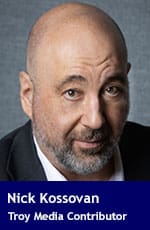Many job seekers think cover letters are outdated, but recruiters disagree

Nowadays, landing a job requires doing what others don’t. That’s why the ongoing debate about whether to include a cover letter with an application is perplexing.
As a job seeker, you should want to do everything possible to differentiate yourself from the competition. The common argument against writing a cover letter is that recruiters and hiring managers won’t read it, leading many job seekers to believe it’s not worth the effort.
Nobody knows exactly what percentage of recruiters and hiring managers read cover letters or how much they influence hiring decisions. Most insights on this topic are anecdotal or based on limited survey data.
Some job seekers look for the easiest route—putting in minimal effort. But nothing worth having comes easy. Given today’s competitive job market, it’s essential to increase your chances wherever possible. A cover letter provides a competitive advantage by making it easier for hiring managers to connect your qualifications and experience to the role.
 Cover letters aren’t just an extra step; they’re your chance to land an interview. |
| Recommended |
| The job search myths that are holding you back
|
| Why talent alone won’t get you the job
|
| Stop blaming others and take control of your job search success
|
Not including a cover letter is a missed opportunity to:
- Pitch why you’re the right candidate for the job.
- Show that you’ve taken the time to understand the role and its requirements. Many job seekers apply indiscriminately, so those who demonstrate they’ve read and understood the posting stand out.
- Provide additional evidence to support your candidacy.
- Demonstrate your writing skills.
This isn’t a debate. The level of effort you put in reflects how much you want the job. Sending a cover letter—or a thank-you email (another topic for another day)—demonstrates your seriousness and strengthens your application. No hiring manager rejects a qualified candidate for including a cover letter. However, some hiring managers consider omitting one unprofessional.
Not including a cover letter is lazy. And hiring managers don’t hire lazy.
Recruiters and employers favour applicants with cover letters, if only because it shows passion and investment in the role.
A common question is whether to include your cover letter as an attachment or in the body of an email. I recommend the latter, as it makes an immediate impression when the email is opened. Keep it short (75 to 150 words) and concise. This highlights two essential career skills: written communication and the ability to articulate the tangible value you bring to a company.
Your cover letter has one job: get the recipient to read your resume. With attention spans shrinking, getting to the point is critical. Writing with brevity will serve you well throughout your career. Keep it short and simple.
[Date]
[Recipient’s first name],
I’m writing to apply for the IT Project Manager position advertised on LinkedIn. Having led Global X’s development team (12 IT professionals) for seven years, overseeing key projects from conception to delivery, I am an ideal candidate for this role.
Some of my career highlights:
- Directed a $5.8-million digital transformation project for an air transport company, reducing lost/damaged cargo incidents from five per cent to 0.8 per cent.
- Reduced costs for a clothing manufacturer by $2 million by conducting a gap analysis of its supply chain process.
- Implemented a cloud migration strategy for over 200 legacy applications, achieving zero downtime and cutting operational costs by 35 per cent.
Call me at (XXX) XXX-XXX to schedule a mutually convenient time to discuss how I can contribute to [Company].
Sincerely,
Jack Arnold
Attached: Resume
That’s it. No long-winded claims about being a “team player,” “detail-oriented,” or a “fast learner.” Employers hire based on results, not self-assessments. The key is to provide three achievements not found in your resume or LinkedIn profile.
Ask yourself: What results did I achieve in past jobs, projects, or tasks?
If writing a concise cover letter that could improve your chances of landing an interview seems like too much effort, you might need to question how badly you want the job.
Nick Kossovan, a well-seasoned veteran of the corporate landscape, offers advice on searching for a job.
Troy Media is dedicated to empowering Canadian community news outlets by providing independent, insightful analysis and commentary. Our mission is to support local media in fostering an informed and engaged public by delivering reliable content that strengthens community connections, enriches national conversations, and helps Canadians better understand one another.
